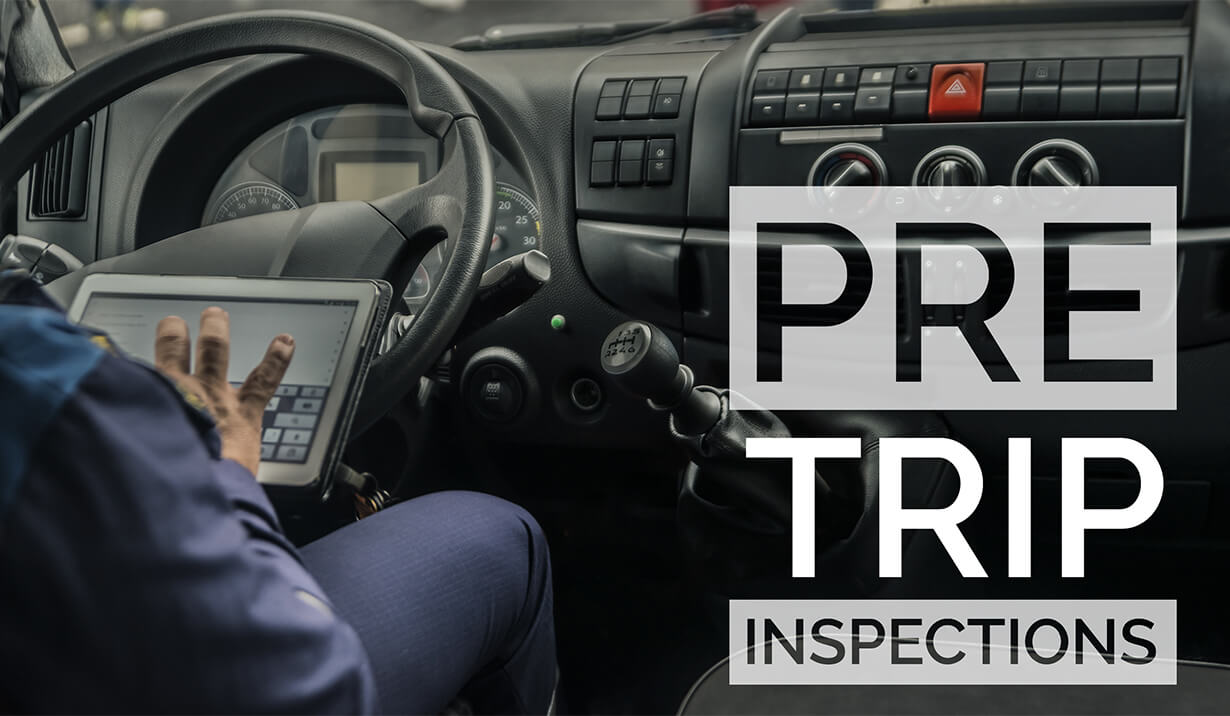How to Keep Pre-Trip Inspection Forms Without the Hassle of Paper
Why do you need to do a pre-trip inspection?
It is legally mandated in Canada, the United States, and Mexico for any commercial vehicle to be mechanically inspected daily, before and after its use. The liability for not conducting these inspections lies on the driver, the owner of the vehicle, and potentially the mechanic. The driver, however, is the first one on the line in the event of an incident relating to a vehicle deficiency. Commercial vehicles that require a daily Pre-Trip Inspection form that must be carried in the vehicle are:
- Bus, school bus, special activity bus or special vehicle
- 2-axle truck or truck tractor with a licensed gross vehicle weight greater than 14,600 kilograms
- Truck or truck tractor towing a trailer having a licensed gross vehicle weight greater than 8,200 kilograms
Ryan Fredrickson, the training specialist from the Minnesota Department of Transportation, puts it clearly. “The bottom line is that all vehicles should be safe to operate anytime they are traveling up and down the highways, and as the operator, you make the decision as to whether or not the vehicle is safe to drive. High-quality inspections can help minimize breakdowns that could ultimately create a hazard to [the driver] and the motoring public as well. Not doing an inspection or not completing the proper paperwork could eventually come back to bite you.”
Benefits of conducting pre/post-trip inspections:
- Ensure vehicle is safe to drive
- Avoid costly fines and driver penalties, including imprisonment
- Prevent accidents caused by vehicle deficiencies
- Identify defective equipment before it fails
- Avoid costly roadside repairs & downtime
Nektar employs a mobile data collection and management system where any paper-based process can be converted into an easy-to-use application that can be customized to include all required checklists for any business, including pre and post-trip inspections.
Benefits of using Nektar’s solution:
- Easy-to-use system limits push back and increase compliance
- Higher levels of compliance and accountability reduce costly repairs from unnoticed deficiencies
- Provides owners with the ability to view in real-time any inspections that have been completed, leading to higher levels of accountability
- The paperless system eliminates the need for paper checklists to exchange hands from post-trip the previous day to that day’s pre-trip inspection for review
- No need to keep physical documents on hand for the required 90 days, since all inspection reports are stored securely in the cloud
Example of paper-based pre-shift inspection:
In this pre-shift inspection, it is noted that the air conditioning unit is no longer functioning properly. While this does not affect the safe operation of the vehicle, it is something that would require a repair in the short term. Rather than having a physical piece of paper touch different hands on its way to the service department, a work order can be developed immediately from the app once the defect is noticed and sent digitally to the relevant people at the service shop.
Example of Pre-Trip vehicle inspection report using mobile data collection:
Nektar’s online reports are conveniently stored securely in the cloud where they can be retrieved at any time in a matter of seconds. As the above example shows, all the legally required sections are present. In this example, there are no major defects detected, since there is no “x” marked in any of the boxes. If, however, there were major or minor defects found, the inspector would then leave notes describing these issues and the report would then draw up a work order to be sent to the service department for the repairs to be completed. Once the repairs were all completed, this information would be stored and attributed for future reference to the asset.



